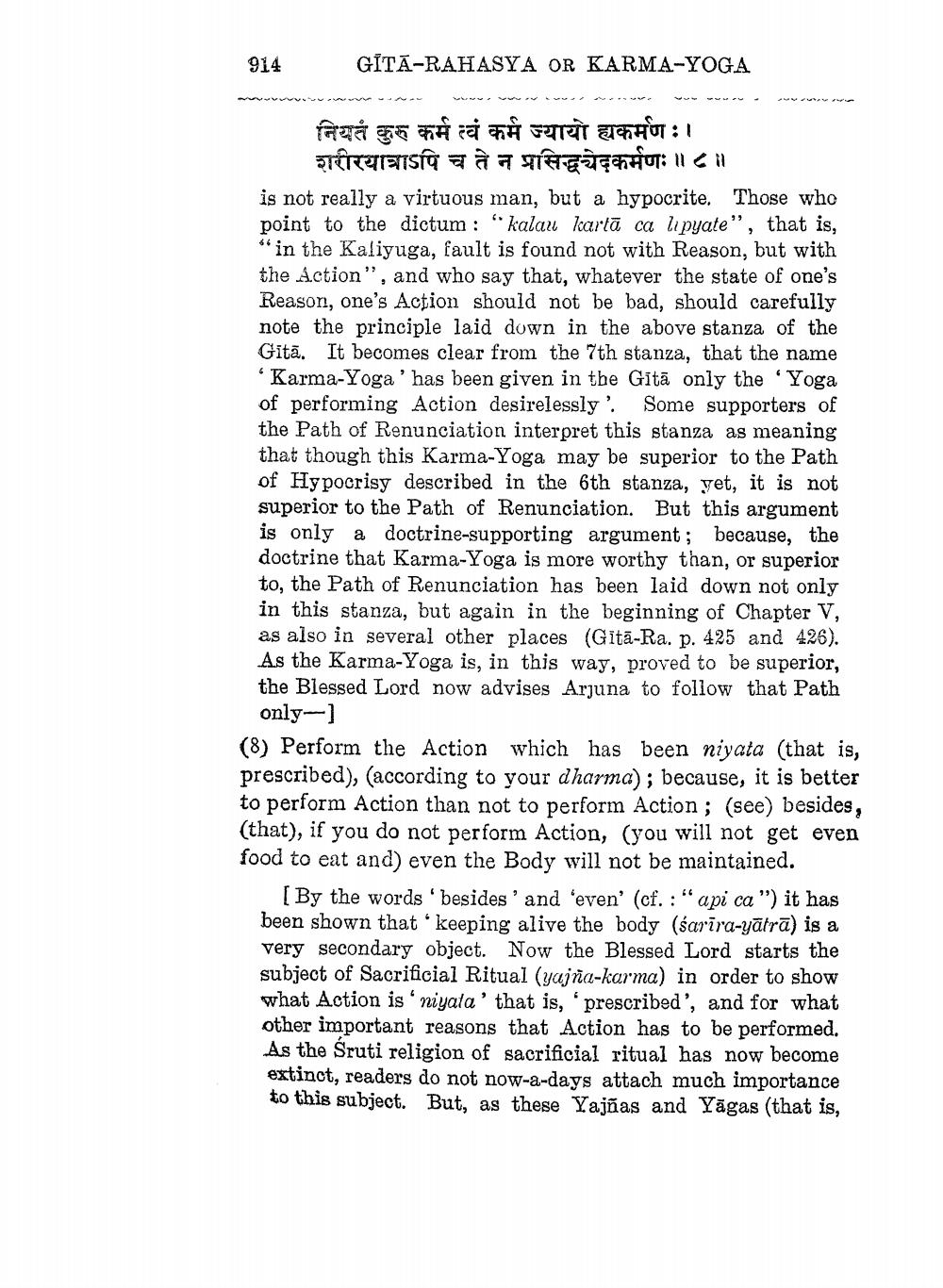________________
914
GÍTĀ-RAHASYA OR KARMA-YOGA
नियतं कुरु कर्म त्वं कर्म ज्यायो ह्यकर्मणः।।
शरीरयात्राऽपि च ते न प्रसिद्धयेदकर्मणः ॥८॥ is not really a virtuous man, but a hypocrite. Those who point to the dictum : "kalau kartā ca lipyate", that is, "in the Kaliyuga, fault is found not with Reason, but with the Action", and who say that, whatever the state of one's Reason, one's Action should not be bad, should carefully note the principle laid down in the above stanza of the Gitā. It becomes clear from the 7th stanza, that the name 'Karma-Yoga' has been given in the Gītā only the 'Yoga of performing Action desirelessly! Some supporters of the Path of Renunciation interpret this stanza as meaning that though this Karma-Yoga may be superior to the Path of Hypocrisy described in the 6th stanza, yet, it is not superior to the Path of Renunciation. But this argument is only a doctrine-supporting argument; because, the doctrine that Karma-Yoga is more worthy than, or superior to, the Path of Renunciation has been laid down not only in this stanza, but again in the beginning of Chapter V, as also in several other places (Gita-Ra. p. 425 and 426). As the Karma-Yoga is, in this way, proved to be superior, the Blessed Lord now advises Arjuna to follow that Path
only-] (8) Perform the Action which has been niyata (that is, prescribed), (according to your dharma); because, it is better to perform Action than not to perform Action ; (see) besides, (that), if you do not perform Action, (you will not get even food to eat and even the Body will not be maintained.
[By the words 'besides' and 'even' (cf. :"api ca”) it has been shown that keeping alive the body (śarīra-yātrā) is a very secondary object. Now the Blessed Lord starts the subject of Sacrificial Ritual (yajña-karma) in order to show what Action is niyala' that is, 'prescribed', and for what other important reasons that Action has to be performed. As the Sruti religion of sacrificial ritual has now become extinct, readers do not now-a-days attach much importance to this subject. But, as these Yajñas and Yāgas (that is,




